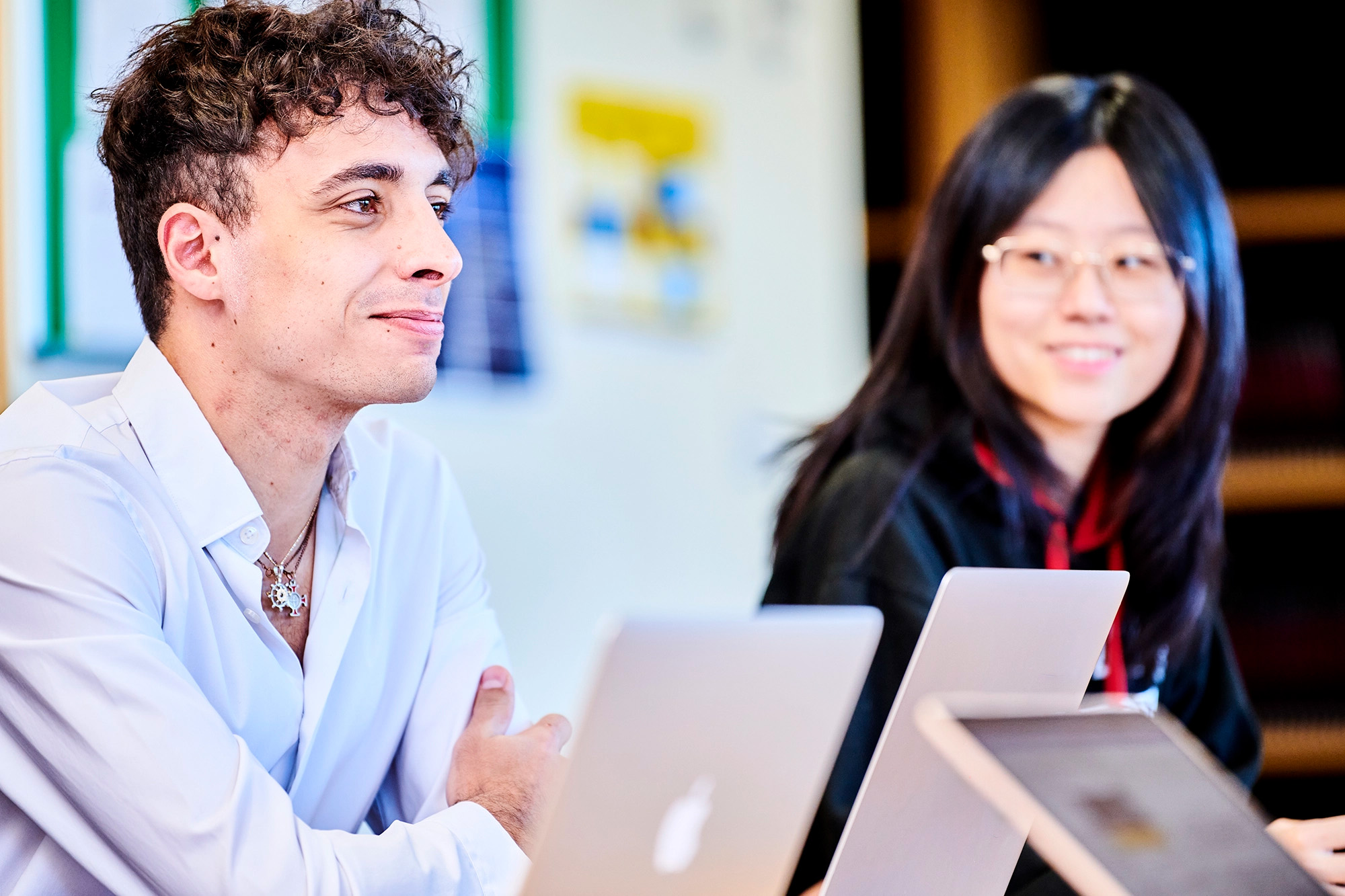Digital Society and Education
The Digital Society and Education research cluster aims to explore how digital technologies intersect with education and society, addressing, amongst others, issues related to equity, inclusion, and curricular transformation through interdisciplinary research and practice.
Cluster Members
Cluster Lead: Dr Cristina Costa
Cluster Co-lead: Dr Michaela Oliver
Durham SoE Cluster members
- Dr Christina Chinas
- Dr Anna Llewellyn
- Dr Xiaofei Qi
- Dr Jasper Roe
- Prof Jonathan Tummons
- Dr Sarah Walker
- Dr Sophie Ward
- Dr James Wood
Durham PhD Scholars
- Lisa Bian
- Jake Burdis
- Frida Franco
- Candace Nolan-Grant
- Juan Zhang
- Yuanya Zhang
External research affiliates and members
- Jane Kennedy, Lead Advisor Professional Learning & Commercial Engagement, Durham Council
- Catherine Hydon, Director of ALP Institute for Teaching, Leadership and Research, ALP Learning
- Lee Stott, Leader of ALP’s Digital Technology Strategy, ALP Learning
- Rhoda Morrow, Mental Health Development Worker, Young Women's Outreach Project and Gladstone Terrace Centre for Young People
- Barbara Spooner, Head of Digital Safety CIC
- George Spour, Community Outreach Manager, Digital Safety CIC
Themes
- Gen-AI in education (Dr Cristina Costa; Dr Michaela Oliver; Dr Jasper Roe)
- Digital literacies, citizenship and curriculum imagination (Dr Cristina Costa; Dr Michaela Oliver)
- Digital well-being (Dr Cristina Costa; Dr Michaela Oliver; Dr Sarah Walker)
- Young people, digital participation and inclusion (Dr Cristina Costa; Dr Michaela Oliver; Dr Anna Llewellyn)
- Digital Parenting (Dr Xiaofei Qi)
- Digital storytelling (Dr Sophie Ward)
We also run a Digital Society and Education Emerging Researcher Network for and with PhD Scholars
Lead: Ms Yuanya Zhang
Mentor: Dr Cristina Costa
The Digital Society and Education Emerging Researcher Network is a vibrant, peer-led initiative designed for PhD scholars and early-career researchers exploring the intersection of digital society and education. Co-led by emerging researchers and supported by an experienced academic mentor, the network offers a collaborative and inclusive space to share knowledge, develop research skills, and build academic careers.
Our mission is to foster a supportive research culture through activities that encourage dialogue, skill-building, and community.
Activities include:
- Communi-Cake: An informal space to share and discuss challenges and experiences of the PhD journey and eat cake! (Twice a term). [PGRs + academics]
- Research Tertúlia: A developmental space to share research ideas and work-in-progress (Two half-days per year). [PGRs + academics]
- Writing Group: A regular peer-led session focused on academic writing (Monthly). [PGRs]
- Research Book Club: A monthly discussion of selected readings, alternating with the writing group. [PGRs + academics]
The network welcomes collaboration with other strands of the Digital Society and Education research cluster and values contributions from both postgraduate researchers and established academics.
[1] A research Tertúlia is an informal and participatory gathering that brings researchers together to engage in thoughtful discussion, exchange ideas, and critically reflect on scholarly topics in a welcoming and inclusive environment. Its informal format is designed to encourage open dialogue and foster a collaborative spirit around focused discussions, inviting scholars at all levels to contribute and learn from one another.
Information about PhD studies
We encourage enquiries from prospective PhD students whose research interests align with the work of the cluster and its members. If you have a specific project in mind, please contact the academic whose expertise best matches your proposal. You can use our suggested PhD proposal template to structure your application - PhD Proposal Template.
For general inquiries about studying with us, please contact ed.pgrstudents@durham.ac.uk
Students enrolled at Durham University can choose the following modules:
UG Taught Modules
- Digital Literacies in Action (UG – Interdisciplinary Faculty-Wide Module)
- Digital Society: Theory and Practice (UG)
PGT Taught Modules
- Digital Technologies and Education: Critical Perspectives (MA)
Get in touch
For further information contact the cluster leads


/prod01/prodbucket01/media/durham-university/departments-/education/Books-Banner.jpg)

/prod01/prodbucket01/media/durham-university/study/Two-students-with-laptops-smiling-87984-v2.jpg)
/prod01/prodbucket01/media/durham-university/departments-/education/54047.jpg)
/prod01/prodbucket01/media/durham-university/departments-/education/seminar.jpg)
/prod01/prodbucket01/media/durham-university/departments-/education/Secondary-int-700X300.png)
/prod01/prodbucket01/media/durham-university/departments-/education/Project-2-image.jpg)
/prod01/prodbucket01/media/durham-university/departments-/education/54019.jpg)
